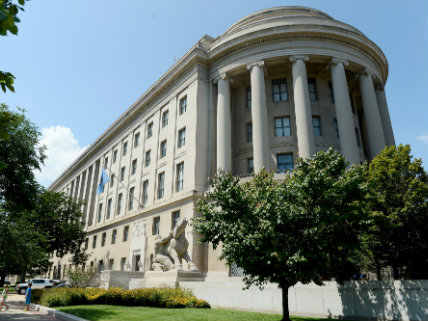New FTC Task Force Will Put Licensing Boards On Notice
Building on a key victory at the Supreme Court in 2015, the FTC plans to target anti-competitive state-level licensing laws.

About two years after scoring a key victory in the U.S. Supreme Court, the Federal Trade Commission is launching a new effort to challenge state-level occupational licensing laws that do little to protect public health and safety.
Maureen Ohlhausen, the acting chairman of the FTC, announced last month the creation of the Economic Liberty Task Force, which will identify problematic licensing laws and encourage state officials to review onerous licensing requirements. Though the task force is mostly meant as an advisory resource for state officials, it will have the ability to take legal action against licensing boards engaged in anti-competitive behavior.
"I believe that economic liberty is central to opening doors of opportunity and increasing competition, entrepreneurship, and innovation that benefits all consumers," Ohlhausen told Reason in an email interview last week. She said the FTC will be partnering with governors, state attorney generals, state legislators and members of Congress.
"We will be working to help them advance economic liberty initiatives that remove barriers to entry and competition," she said.
The FTC traditionally has been concerned with ensuring competition in the private sector—and doesn't have the best reputation among libertarians—but a 2015 Supreme Court case clarified that the commission can target quasi-governmental licensing boards with the same Sherman Antitrust Act powers it's been using against private businesses for more than a century.
In FTC v. North Carolina Board of Dental Examiners, the high court held that state licensing boards are not subject to immunity from anti-trust litigation if those boards are controlled by active market participants and are creating laws that limit competition. The FTC got involved after the North Carolina Board of Dental Examiners, which was controlled by practicing dentists, had passed a rule banning anyone except licensed dentists from offering teeth whitening services.
Licensing rules and the number of professions subject to quasi-government gatekeepers vary widely from states to state, but have been growing in recent years. In the 1950s, only about 5 percent of all jobs required a license, but today more than 25 percent do. They are particularly onerous for low-income, low-skilled jobs, where licensing serves to raise the cost of entry into a chosen profession, protecting existing practitioners while limiting newcomers.
Like the teeth whitening ban in North Carolina, the new FTC task force is expected to seek to eliminate occupational licensing restrictions that are not narrowly tailored to satisfy legitimate health and safety goals.
"Licensing boards and those who are involved in licensing regulations should examine the ways in which the regulation affects or could affect competition, whether there is evidence that a regulation is necessary to achieve the targeted policy goal, whether the regulation is narrowly tailored to meet the policy goal, and whether a less restrictive alternative is available to achieve the policy goal and benefit competition," says the National Law Review, in an analysis of the task force's mission.
It's not ideal to have the federal government threatening anyone with litigation if they don't change their ways, but licensing boards that pass anti-competitive rules without an interest in protecting public health are overstepping their authority—and Olhausen wants to make sure they'll face the consequences.


Show Comments (18)